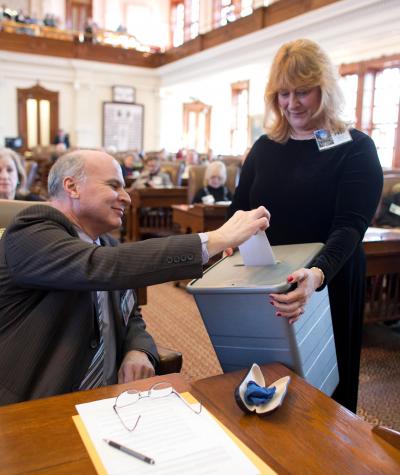Former Senate Majority Leaders Tom Daschle (D-SD) and Trent Lott (R-MS) argued that the Electoral Count Act of 1887 (ECA) should be updated in an op-ed published by The Wall Street Journal and highlighted the need for Congress to act in a bipartisan manner to close loopholes that could undermine voters’ ability to decide the outcome of the next presidential election.
The ECA provides the primary legal framework for how presidential votes are cast and confirmed and specifies Congress’ role in this process. When Americans cast their votes for president and vice president, they do not do so directly; rather, they vote for their state’s slate of electors.
Electors in each state then meet after Election Day to cast their votes, and those votes are sent to Congress, which counts them to confirm the winner.
However, the ECA has not been updated since it was first enacted more than 130 years ago. Currently, a loophole in the law could potentially allow the majority party in Congress to overrule the voters and throw out a state’s certified presidential election results.
As CLC’s election lawyers and experts from Protect Democracy and the CATO Institute discussed at an event about bringing the ECA into the 21st century, necessary updates include clarifying the role of the vice president, raising the threshold for objections in Congress and creating a better process for states to resolve election disputes before Congress certifies the winner.
Following the events of the last presidential election, interest in clarifying the ECA’s language has grown, and members of Congress from both sides of the aisle are working together to devise solutions.
Over the last few months, a U.S. Senate working group, led by Sen. Susan Collins (R-ME) and Sen. Joe Manchin (D-WV) has been meeting to explore ways to better resolve election disputes. Meanwhile, Rep. Zoe Lofgren (D-CA) and Rep. Liz Cheney (R-WY) have been working on a similar bill in the U.S. House of Representatives.
Polling suggests that Americans of all political persuasions support these efforts. In October 2021, a survey commissioned by CLC, Protect Democracy, Issue One and RepresentUS showed strong bipartisan support, with voters favoring updating the ECA by a 44-point margin.
It also found that most voters — 58% — believe there is a real threat that a party in Congress will try to overturn the results of an upcoming presidential election to put their own candidate in power.
Nearly two thirds of voters — 63% — say they would be more likely to support updating the ECA if it was written and proposed by both Democratic and Republican members of Congress.
The next presidential election could be one of the most contentious ever and a loophole in the ECA — which hasn’t been updated in 130 years — could allow partisan actors to throw out a state’s certified presidential election results. The ECA must be updated to protect the will of the people. Elections should be decided by voters, not partisan politicians.
